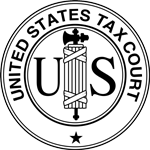- Free Consultation: (772) 418-0949 Tap Here to Call Us
How to Choose Between Hiring a CPA and a Tax Attorney

The answer depends on what your specific tax goals and needs are. Both professional tax attorneys and Certified Public Accountants (CPAs) help with many different types of planning and complicated tax situations; however, each is geared more to help you in certain areas than the other. Selecting the correct professional for the engagement is essential to ensure proper coverage and protection. Understanding the differences in capabilities will help make choosing the right professional type much more straightforward. Let’s start with their backgrounds.
Background of CPAs and Tax Attorneys
Licensed in their respective fields requires tax professionals to undergo extensive training and education and pass a comprehensive state examination.
A tax attorney requires at least seven years of schooling (a four-year bachelor’s degree and a three-year Juris Doctorate issued by a law school). In addition, many tax attorneys pursue a Master of Laws (LLM) in taxation program, which is like a master’s in taxation degree, except with more legal focus. To practice tax law in their respective state, attorneys must pass the Bar Exam, a Multi-state Professional Responsibility Exam, and have proper training.
CPAs require a five-year degree in accountancy, which generally comprises a four-year degree and a one-year master’s degree in accounting-related topics such as taxation, accountancy, and finance. Most tax practitioner CPAs have a master’s in taxation. For licensure, the CPA must pass the CPA examination. The
The CPA exams have parts dedicated to tax and audit where as the bar exam does not cover these areas. Some states require the candidate to obtain a certain amount of industry experience, signed off by a licensed CPA.
Although the Lawyer path requires a seven-year scholastic requirement, there is no mandatory bachelor’s degree type obtainment which could result in only having to undergo three years of legal studies. In contrast, the CPA path requires five years of schooling dedicated to accountancy-related courses. As a result of the mandatory five-year focus on accountancy courses, a CPA will likely have a much broader range of business-oriented capabilities than an attorney but will not have the advocation training that a lawyer acquires during law school.
There are continuing education requirements for each license, where a certain number of educational hours must be met. This ensures that the tax practitioner stays abreast of applicable regulations.
What Situations Are Tax Attorneys or CPAs the Best Suited for?
Even though both professionals have some cross-over capabilities and offer tax advice to reduce your overall tax liability; however, some roles are more suited to one over the other. Ultimately, either should be based on which background covers your issue better.
CPAs generally have a strong background in formulating financial records, budgets, and forecasts, performing day-to-day accounting, preparing tax returns, conducting audit-related activities, and offering tax planning advice regarding the impacts of business developments. When delving into an area that requires solid business transactional astuteness, CPAs are often best to use for this.
In contrast, even though tax attorneys can provide tax strategy advice in many situations, a different benefit of using a tax attorney occurs when engaged in dispute resolution with the IRS. A tax attorney is well-trained to research case law and legal formats to advocate for your behalf properly, whether directly with the IRS or in a tax or district court.
In addition, a tax attorney offers attorney-client privileges for your conversations. You can freely discuss your situation without fear of recrimination by the tax attorney. This is particularly helpful if you are dealing with problems with a possible criminal element.
If you are dealing with an IRS situation involving audit assessments, tax preparations, and financial reporting, hiring a CPA would be the ideal choice. Whereas if your IRS situation has legal concerns or contains areas in dispute, having a tax attorney representing you would be best.
For more information, please read the following blogs:
- “When Should You Hire a Tax Lawyer?“
- “When Should I Hire A Tax Professional?“
- “What to Avoid When Selecting an IRS Tax Resolution Firm” VIDEO
How Will I Know Whether My Tax Issue Requires Using a CPA or a Tax Attorney?
A complete understanding of your tax issue is required to answer this question. This need highlights the importance of starting with a thorough investigation to determine all facets of your tax issues, which will determine what resolution processes will be needed and which types of professionals would be best suited. For more information regarding issue investigation, please see the following blog: “The Importance of Investigating IRS Records in Determining Best IRS Issue Resolution to Use.”
Will Hiring a Dually Licensed Tax Attorney-CPA Provide Better Coverage of my IRS Tax Issue?
Having professional relationships with both professional types seems like an ideal solution to be prepared for various situations which could lend themselves to one over the other. However, there are tax issues where successful resolution may require both skillets. Due to time and fiscal restraints, the taxpayer may not have the luxury of having both types of tax professionals address it. However, there may be an option to ensure proper coverage of your tax issue by simply employing a dually licensed Tax Attorney-CPA.
From the outset of your case, a dually licensed Tax Attorney-CPA will be able to investigate through multiple lenses ensuring all angles of your case are being addressed. As a multi-licensed tax attorney, CPA, IRS Enrolled Agent, and MBA, I, Will Harmon, have had to employ skillsets from all disciplines on many occasions to resolve my client’s IRS tax issues correctly. I look at each problem simultaneously through multiple lenses allowing for a complete perspective and determining a solution that addresses all the pertinent issues. I may not have been as successful without the ability to utilize these combined skillsets.
Please see the blog “Tax Attorney vs. CPA vs. IRS EA: Why Not Hire a Three-In-One?“
Since it requires a complete commitment and much dedication for a professional to obtain dual licensing, you can expect the same commitment will be made towards all facets of your case.
Harmon Tax Resolution, LLC Provides Trusted Representation!

We ensure that you will receive the complete representation your important tax matter deserves. Don’t settle for less! Call Harmon Tax Resolution, LLC at 772-418-0949 or complete our online form for a free consultation on how multi-licensed attorney-CPA-IRS EA, Will Harmon, can help you put your tax issue behind you so that you can move on and enjoy life again.












